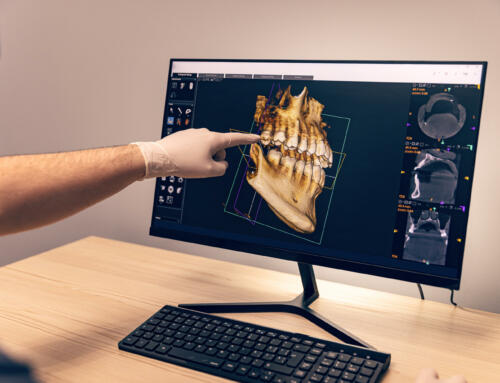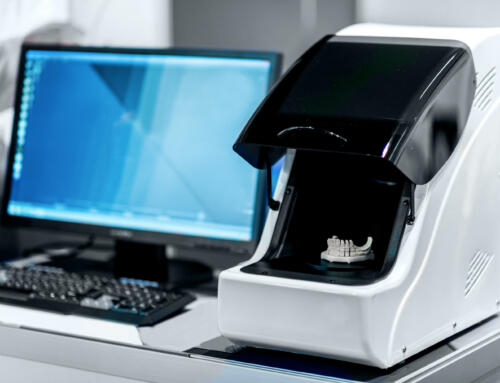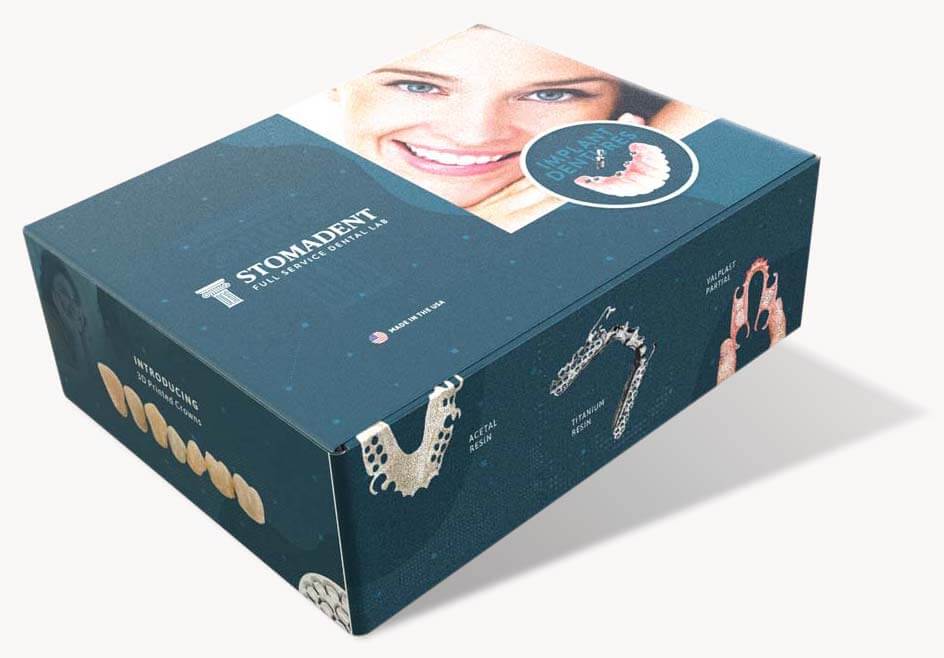
By David Hudnall, DMD
Patients Ask: What Is A Soft Reline for Dentures?
A soft denture reline is a process of adding new material to the inside surface of an existing denture in order to improve the denture’s intimate contact with the hard and soft tissue. The goal is to create denture stability while improving the fit, suction, and chewing ability. When used with the correct indications, a soft denture reline can increase the lifespan of an existing set of dentures for extended period of time. Two common types of soft reline materials available are poly-ethyl methacrylate (PEMA) and dimethyl siloxane, a silicone-based product.
Soft denture relines are appropriate in cases where the patient has tender gums, recurrent sore spots, an extremely resorbed ridge, or a knife-edged ridge. These conditions make wearing dentures particularly uncomfortable. The forgiving properties of the soft reline material cushions the blow of minor movements and allows the patient to chew comfortably without irritation. Soft relines can also be used with patients who have loose tissue or papillary hyperplasia in the palate.
How Long Does A Soft Reline Last?
The average lifespan of a lab-processed soft reline is one to two years before replacement is required. This, of course, is dependent on how the patient cares for the denture and patient habits (i.e. smoking). Silicone-based soft reline materials have a history of retaining their resiliency longer than their PEMA counterparts.
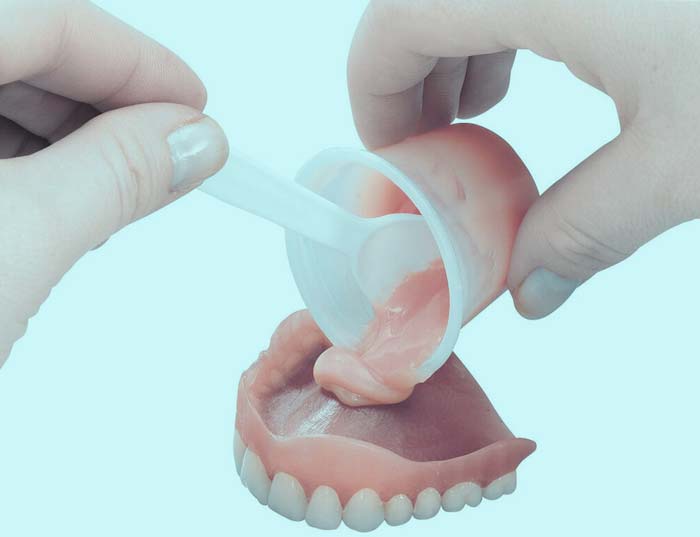
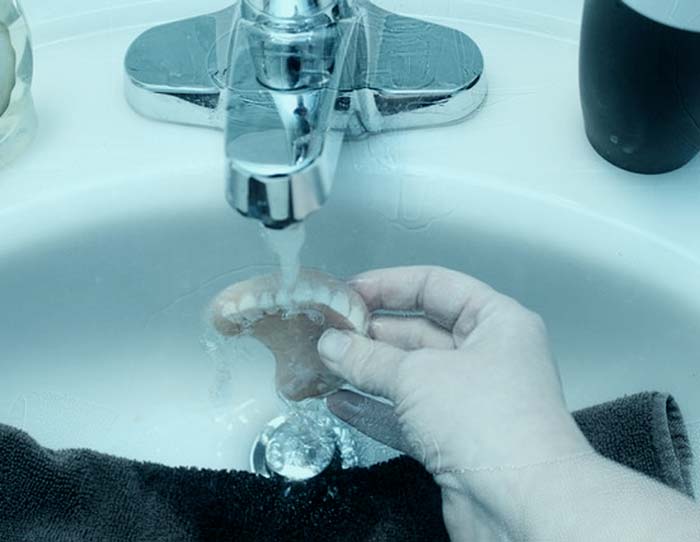
How Should Patients Clean Dentures with a Soft Reline
Soft relines require special home care in order to be properly cleaned. Rinse the reline under cool running water and gently brush with a soft bristle brush. Most soft reline material manufacturers do not recommend soaking dentures overnight or for extended periods of time in effervescent denture cleansers. Soft relines become hardened and brittle with time. Effervescent cleaners tend to accelerate this process.
21 Steps to a Perfect Soft Denture Reline
How Do You Perform A Soft Reline? First, determine whether a soft reline will help your patient. Then help your dental laboratory to achieve the best results possible by obtaining the records they need to make the process run smoothly. Included here are soft denture reline instructions and an impression technique that works:
Step 1:
Examine the bite, midline, and lip position with the dentures in place.
Step 2:
Remove any deep undercuts that would prevent the dentures from being separated from a model.
Step 3:
Adjust borders that are long or impinging on soft tissue.
Step 4:
Work on one denture at a time, using the opposing denture to maintain the proper occlusion.
Step 5:
Roughen the borders and the tissue side of the denture being relined with an acrylic bur.
Step 6:
Create three tissue stops with modeling compound or heavy-body polyvinyl siloxane (one in the anterior and two in the second molar areas) to maintain the correct vertical dimension of occlusion (VOD).
Step 7:
Insert the denture with warm compound or polyvinyl siloxane in place and have the patient bite into maximum intercuspation. Allow the material to set. Then remove the denture from the mouth.
Step 8:
Adjust the tissue stops to remove any undercuts. Reinsert and check for stability, proper occlusion, and position as it relates to the anatomy and facial features.
Step 9:
If the borders of the denture are short or inaccurate, border mold the denture in the mouth using compound or rope wax to extend the borders.
Step 10:
Try the denture back into the mouth. Be certain the denture is fully seated and resting on the tissue stops. The denture must fit passively with the patient in occlusion.
Step 11:
Dry the denture.
Step 12:
Apply impression adhesive to the intaglio surface and borders.
Step 13:
Add medium-body polyvinyl siloxane (PVS) impression material to evenly coat the inside of the denture and borders. Do not overfill.
Step 14:
Align the denture and fully seat it until the denture rests entirely on the tissue stops.
Step 15:
Have the patient close into maximum intercuspation.
Step 16:
Check that the midline is in the correct position.
Step 17:
Verify that the lip position is the same as it was at the initial examination.
Step 18:
If the appearance or bite is not the same as what you observed at the initial examination in every way, allow the impression material to set completely, remove it, and start over.
Step 19:
After the impression material has fully set, remove the denture from the mouth and trim away any excess impression material.
Step 20:
Reinsert the denture with the impression.
Step 21:
Repeat the process with the opposing denture.
Send the impressions with your written laboratory prescription requesting a soft laboratory-processed reline to the dental laboratory for processing. Remember to include any information about the baseplate material that was originally used to make the denture, if you have it.
How Much Does A Soft Reline Cost?
Stomadent offers laboratory-processed soft relines starting at $119 per complete denture. The processing time is one day. Same-day reline service is available within Idaho’s Treasure Valley area.
Laboratory-processed relines require the patient to be without their dentures while the lab is working on them. Generally, a lab-processed reline will last longer than a similar chairside reline.
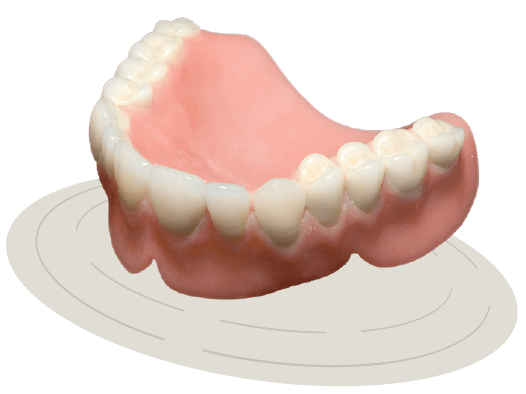
soft relines starting at $119 per complete denture.
Why Stomadent?
Stomadent Dental Laboratory is your go-to source for laboratory-processed relines. We have the training, expertise, and the years of experience to extend the life of your patient’s old dentures and turn them into like-new dentures with improved comfort and fit. We are your partner for denture services!

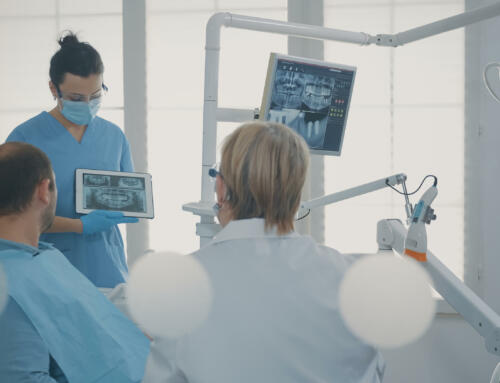
![Hybrid Denture with Titanium Bar [Best Methods + Advantages]](https://stomadentlab.com/wp-content/uploads/2024/01/dental-prosthesis-on-dark-background-2023-11-27-05-06-28-utc-scaled-500x383.jpg)
![The Lucitone Denture Advantage [Best Practices + Advice]](https://stomadentlab.com/wp-content/uploads/2022/08/lucitone-promo-1-500x383.jpg)
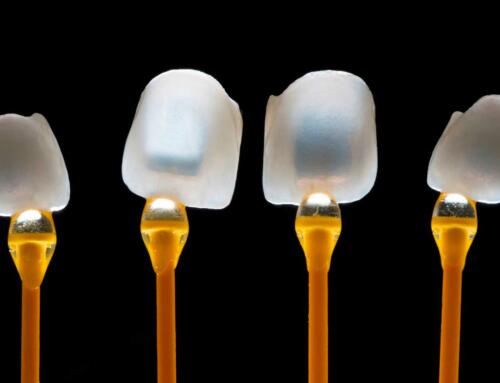
![How to Remove Snap On Dentures [Expert Guidance]](https://stomadentlab.com/wp-content/uploads/2023/12/a-denture-in-a-glass-of-water-dental-prosthesis-c-2023-11-27-04-50-54-utc-scaled-500x383.jpg)

